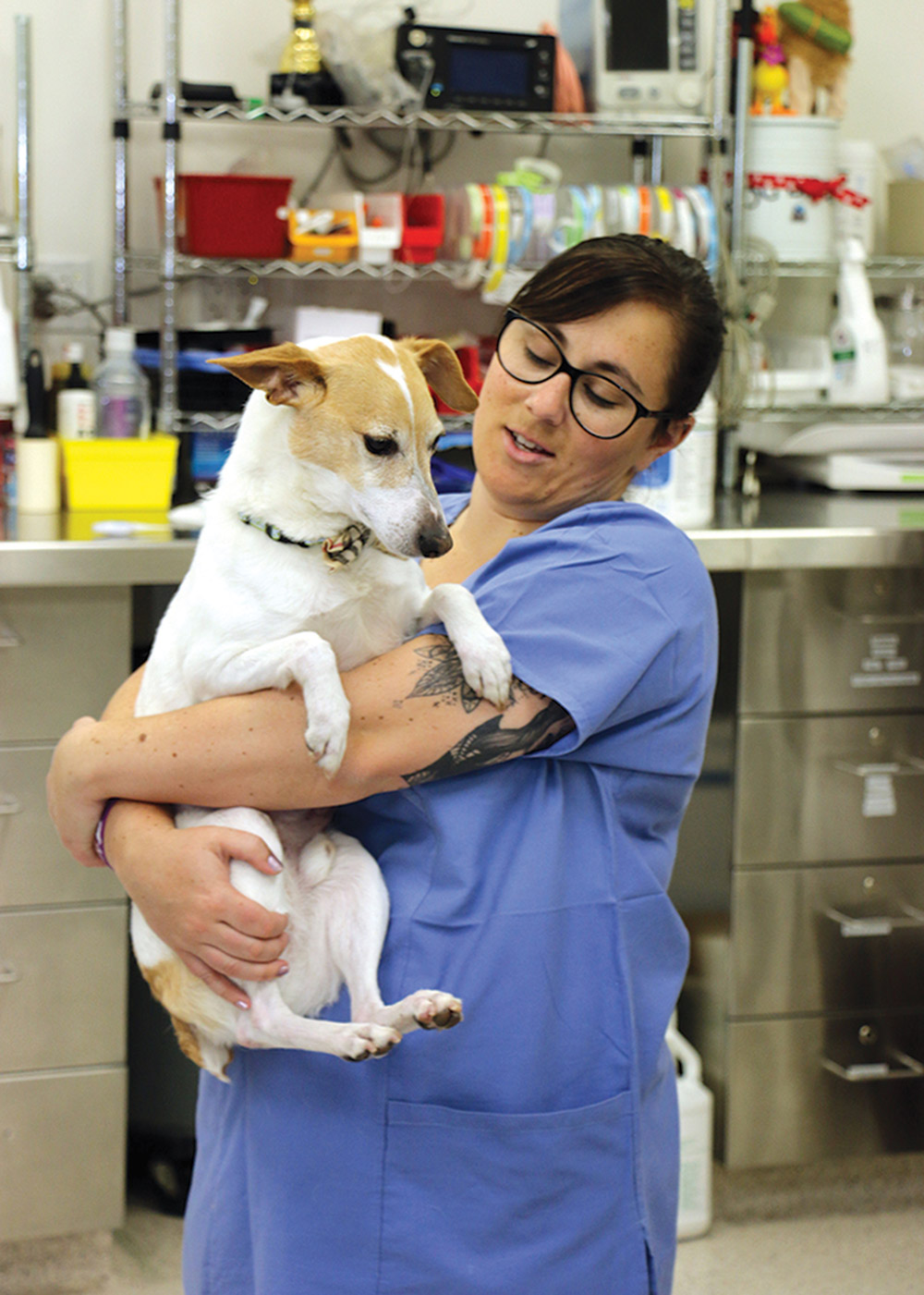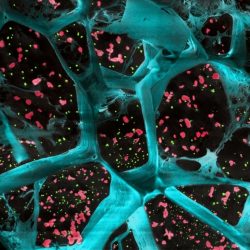Dogs against Cancer
An innovative study looks to man’s best friend for answers on prevention.
The UW’s School of Veterinary Medicine may help find the answer to preventing cancer in humans — and it all starts with our furry friends.

Nine-year-old Norton, a rat-terrier mix, gets a hug from his owner and UW veterinary technician Abbey Ace after he receives one of the first VACCS vaccines. Meghan Lepisto
The Vaccination Against Canine Cancer Study (VACCS) — housed within Colorado State University, the University of California–Davis, and UW–Madison — is the largest interventional, clinical trial in the history of veterinary medicine, and it is unlike other anti-cancer vaccination studies that have been tested on dogs and humans. Rather than using an individual, customized vaccine to treat a dog or human who has already developed cancer, VACCS tests a vaccine that aims to prevent cancer and offer them a universal solution, similar to a flu vaccine.
“[The idea is] to recognize cancers when they’re forming, when there’s just a few cells rather than a billion cells, which is when we typically make the diagnosis of cancer,” says David Vail, who is an oncology professor and the principal investigator of the UW’s branch of VACCS.
In May, Vail delivered the study’s first vaccine, and a total of 800 dogs are expected to participate among the three universities. Each dog will receive four inoculations — with either the real vaccine or a placebo — over eight weeks, another after six months, and one each year for five years. Over the course of the study, a safety monitoring board and biostatisticians will evaluate the vaccine’s safety and efficacy. If a dog develops cancer, financial assistance from the trial — funded by the Open Philanthropy Project — will help pay for diagnosis and treatment.
Dogs are diagnosed with similar types of cancer as humans and face a 30 to 40 percent lifetime risk of developing the disease. Because of dogs’ shorter lifespans and more rapid biological clock, their cancers develop more quickly, meaning researchers can determine in a five-year period what might take 15 to 20 years in humans, Vail says.
The vaccine was developed by Stephen Johnston at Arizona State University, who examined hundreds of canine and human cancers to identify more than 30 abnormal peptides that appear in different cancers. In dogs, these peptides appear in nine common cancer types; the vaccine, therefore, strives to help pooches’ immune systems memorize the peptides in order to kill cancer cells as they arise.
“This could be a catchall type of preventative vaccine that is a much more inexpensive technology than creating a personalized vaccine,” Vail says.
Published in the Fall 2019 issue



Comments
No comments posted yet.